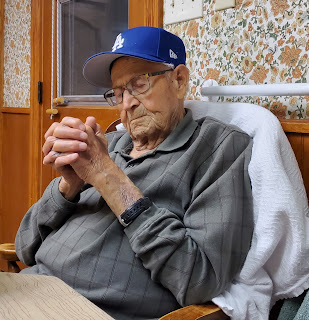I want to teach my culture to and with those who appreciate the legacy of heritage. I did not understand, in my own proverbial backyard, there is an organized and professional way to learn to do this. Through my understanding of Chicano Studies I did not consider that I might contribute my own self-labeled Chicano journey to this program. Me, as a young learner, treated knowledge as preparation for a trade. University sowed the ideas of discovery into my mind, growing an authority, allowing me to share knowledge beyond a career. My maturity and hardship inspired me to transcend my learning into a creative service through counseling. I am once again sharpening my learning, hoping to sharpen my contribution to my communities by giving back an organized and vetted perspective on what created me. I feel very unworthy and know what Albuquerque, Santa Fe, and New Mexico did to me is worth researching and replicating.
I spent hours with people seeking care for behavioral, lifestyle, and relationship healing. They were looking for answers to miseries, as if they didn't have the answers intrinsically, at minimum nearby, or even with the possibility that an answer didn't exist yet. I have a background in counseling, and strong desire to shrink the social gaps mestizo communities are closing. I have a desire to turn this tour of duty in Albuquerque’s social battle for wellness into an ethnography. I learned that communal wellness through the vocation of counseling alleviates individual relationships. Now, I’d like to transcend those individual experiences into a map of patterns for the potential of healing groups, through ideas. I would like to contribute concepts for healing where in counseling I felt I was providing a smaller step, maybe relief.
I find counseling, when done well, addresses the ways we are perceiving that we are not lovable. And it might be important to quickly note that there are mental health diseases and dysfunctions that can't be reasoned away using this understanding. By reducing my mental health training down to working through a few hard knox lessons in self-love, I am not trying to minimize or overlook any forms of medically based modalities. I am trying to address the more humanistic and collective experiences with hardship. The common pain-filled angsts troubling populations that need support and attention but not necessarily the clinical treatments and prescriptions, are opportune topics for research.
I would like to present or describe how Love, as a cultural trait, is an essential nutrient for agency. Cultures that build agency into their pedagogy know how to heal and thrive. Love orientates us towards harmony. Harmony in a communal form is culture done well. Culture done well becomes heritage, and defining “well” is what I hope to discover. I want to explore and map the Love qualities found in my mestizo heritage.
The mental health field is a vocational way of contributing attributes of wellness to a community and it is not my preference for pedagogy. Through my introspection and discernment on how and what could help me grow into the man the world might need, God might expect, and most importantly who my grandma invested in, I realized the ultimate pedagogy was in the modesty of their lives. A lifestyle of civic duty, religious loyalty, resourceful sustainability, communal dependence, and within a lower class. I want to share this pedagogy.
I want others to know that learning does not necessarily mean having to split atoms. I want to share that learning to be communal might be just as world changing as putting a rocket into space. The modesty of the New Mexican is overshadowed by the provocative celebrity of the brilliant jet setter. The meritocratic modalities should not be the only orientations that we have to offer our learners. What I hope the Chicano Studies program can challenge me to do is organize my desire to package lessons of modesty, mostly in the form of love, into a curriculum of culture.
I am curious about integrating my analytical skills, mental health training, and passion for the stewardship of my heritage's traditions. I want to focus this curiosity on finding patterns for cultural wellness. I want to participate in the ethnography of my New Mexican lifestyle by leveraging it as a case study for this exact pattern seeking. I want to explore this ethnography through the Chicano lens. The Chicano lens gives me the closest prescribed vision to articulate and set scope for what heritage means for me. I align with the perplexities brought out by the Chicano movement, particularly the identity struggle, civic stewardship, and a intellectual potential for shaping Latin communities.
I am talking about treating these identified patterns as medicinal qualities. I want to re-align learning with culture in a way that brings agency to traditions being overshadowed. I want to align our recent ancestral traditions with contemporary tools not to regress in lifestyle but to enhance the mestizo gaps in cultural authority. I want to contribute to this legacy in peer reviewed and criticized ways. I want to orientate some mindsets so we are staring into the heart of healing by suggesting cultural medicines.
That brings me to this request. I want a formal platform for describing or shaping these patterns in a way that can mature them into something presentable. I aspire to validate the patterns of humanistic traits expressed through a unique Latin flavor. I want to contribute to the legacy of Mestizo minds. I hope to learn how to teach the human experience through a topic that provides more familiar and intimate pedagogy for peoples of Spanish Mexican origins. I want to learn to write my ideas so that the qualities found in my modest family systems can be packaged as reliable.
And with this I put one small step towards an education in Chicanismo.










